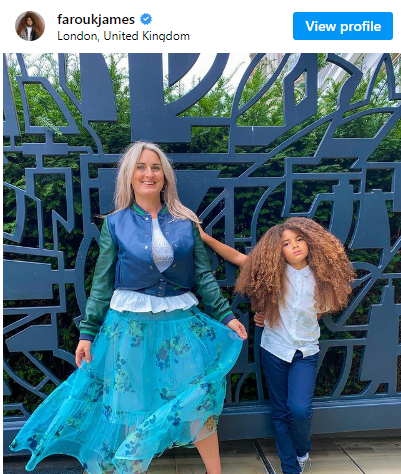School rules often evoke mixed emotions, but one aspect that unites us all is the desire for self-expression. For 8-year-old Farouk James, his stunning head of hair has become a symbol of identity and cultural pride. However, it’s also the reason he’s struggling to find a school that accepts him.
Farouk’s modeling career has taken him to New York and Italy, but his education is suffering due to rigid school policies. His mother, Bonnie Miller, recalls how her older son was once told his hair was too short, while Farouk’s length is now deemed unacceptable.

The family’s cultural heritage plays a significant role in their decision to keep Farouk’s hair long. His father is from Ghana, where it’s customary to let a child’s hair grow until they’re three. Bonnie sees forcing children to cut their hair as a violation of human rights.
In the UK, most schools have policies prohibiting boys from having long hair, while girls are allowed to keep theirs. Bonnie argues that these rules are outdated and discriminatory, particularly against children from diverse cultural backgrounds.

Bonnie’s determination to challenge these rules has led her to start a (link unavailable) petition and launch the “Mane Generation” movement. She vows to fight until these policies are changed, not just in the UK but globally.
Despite the support of over 250,000 Instagram followers, the family faces negative comments and criticism. Bonnie remains resolute, insisting that Farouk’s hair is an integral part of who he is.
The debate surrounding school appearance rules raises important questions about cultural sensitivity, equality, and self-expression. Bonnie’s crusade highlights the need for schools to reconsider their policies and embrace diversity.
As Farouk’s story gains attention, it sparks a vital conversation: should schools prioritize inclusivity over outdated rules? Bonnie’s unwavering dedication ensures that her son’s hair becomes a symbol of acceptance, not exclusion.
In a world where individuality is celebrated, it’s time for schools to reevaluate their stance on appearance rules. Farouk’s hair is more than just a style – it’s a representation of his identity, culture, and right to self-expression.


